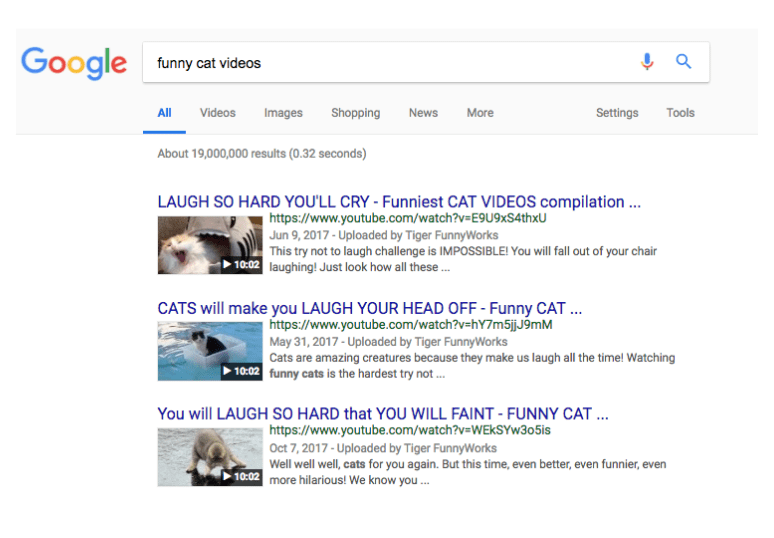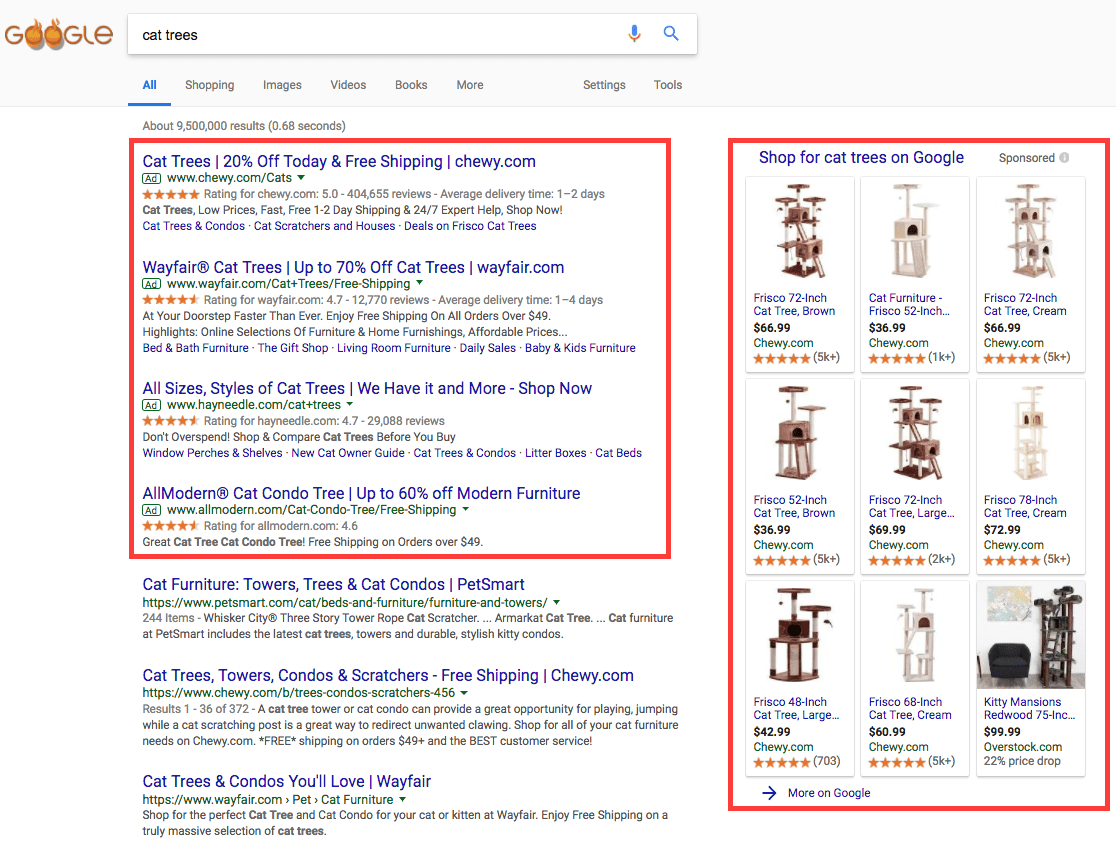It’s easy to get confused about SEO vs SEM. The terms are often used interchangeably, and many digital marketing professionals fall short when explaining these concepts (including, in the past, yours truly).
However, for this post I’d like to take a stab at explaining these terms and exploring which of the two – Search Engine Optimization or Search Engine Marketing – is the better choice for your business. Buckle up ‘cause we’re breaking it way down.
Skip Around This Blog Post
1. What is a search engine and how does it work?
2. What is search engine optimization (SEO)?
3. What is search engine marketing (SEM)?
4. Is SEO or SEM better for my business?
What Is a Search Engine?
Google, Bing, Yahoo and DuckDuckGo are all search engines. Search engines use an algorithm (fancy math-code that nobody fully understands) to find specific websites on the world-wide-web. A search engine’s one and only goal is to answer user questions better than any other search engine. And currently, Google is king at it.
Here’s an over-simplified example of how search engines work: type “funny cat videos” into Google. Once you do, Google crawls every website in the world, decides which ones have what you’re looking for (cat videos) and shows you a list of the best websites or web pages that contain – you guessed it – funny cat videos. Google does all this in a split second. It’s kind of magic, really:
 But more importantly, say you own an event space in Springfield, MO and a potential customer searches for the keyword “wedding venue” or “reception venue” in Google. You want Google to show your website near the top of its organic list (right below the paid ads). Right? This is where SEO comes in.
But more importantly, say you own an event space in Springfield, MO and a potential customer searches for the keyword “wedding venue” or “reception venue” in Google. You want Google to show your website near the top of its organic list (right below the paid ads). Right? This is where SEO comes in.
So, What Is Search Engine Optimization (SEO)?
Search Engine Optimization is the process of earning traffic to your website through organic (unpaid or free) listings. It’s optimizing your online presence so search engines can find you when it matters most – when customers are looking for you on Google. A large part of SEO is keyword research and creating high-quality content – such as blog articles and web page copy – that your target audience will find helpful. The trick is to create content that:
- Readers deem worthy of reading, sharing and interacting with
- Search engines deem worthy of pulling for Search Engine Result Pages (SERPs)
Although keyword research and content creation are a large part of SEO, it’s not the be-all, end-all. Your SEO strategy could also include creating online directories, link building, optimizing user experience and other white-hat practices that help improve your company’s online reputation. Over time, SEO results in increased traffic to your website and eventually conversions.
Then What Is Search Engine Marketing (SEM)?
Search Engine Marketing is the process of gaining website traffic by purchasing ads on search engines. Like so:
 For SEM, advertisers bid on the keywords your customers are typing into search engines when looking for products or services like yours. The hope is that your ad will appear above the organic search results or to the right of it when those keywords are queried.
For SEM, advertisers bid on the keywords your customers are typing into search engines when looking for products or services like yours. The hope is that your ad will appear above the organic search results or to the right of it when those keywords are queried.
As you can see from the image above, search ads (also called pay-per-click ads) come in a variety of formats. Some are small and text-based. Others are more visual and include a product image with its price and reviews.
Search engine marketing is great for generating leads quickly. The biggest benefit to SEM is getting your ad in front of motivated buyers immediately.
Which Digital Marketing Tactic Is Better for My Business?
Short answer: it depends.
Long answer: SEO is a long-term strategy that can turn your customers into repeat buyers, while SEM generates more leads in the short-term. I think it makes the most sense to have a strategic combination of both. When searching for a team to help you on your Search Marketing journey, find digital specialists that truly understand the differences, benefits and limitations of both SEO and SEM. That’s where you’re going to get the most bang for your buck.
What SEO or SEM tactics are you interested in using for your business? Do you have any digital marketing questions for us? Hit us up! We’re all ears.
